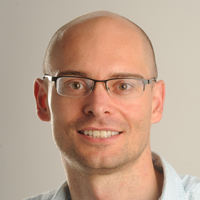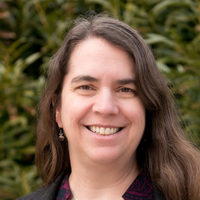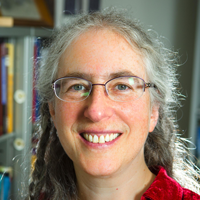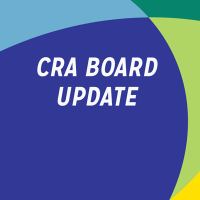Introducing the CRA-E Undergraduate Research Faculty Mentoring Award Winners
 The Education Committee of the Computing Research Association (CRA-E) is proud to announce three winners of the inaugural CRA-E Undergraduate Research Faculty Mentoring Award. Congratulations to the 2016 award recipients: Pieter Abbeel, from the University of California, Berkeley; Marie desJardins, from the University of Maryland Baltimore County; and Judy Goldsmith from the University of Kentucky. These outstanding individuals are recognized for providing exceptional mentorship, undergraduate research experiences, and, in parallel, guidance on admission and matriculation of these students to research-focused graduate programs in computing. The 2016 selection committee included Nancy Amato (Texas A&M University, committee chair); Eric Aaron (Vassar College); Pat Morreale (Kean University); and Barbara Ryder (Virginia Tech). This year’s awards will be presented at the 2016 CRA Conference at Snowbird.
The Education Committee of the Computing Research Association (CRA-E) is proud to announce three winners of the inaugural CRA-E Undergraduate Research Faculty Mentoring Award. Congratulations to the 2016 award recipients: Pieter Abbeel, from the University of California, Berkeley; Marie desJardins, from the University of Maryland Baltimore County; and Judy Goldsmith from the University of Kentucky. These outstanding individuals are recognized for providing exceptional mentorship, undergraduate research experiences, and, in parallel, guidance on admission and matriculation of these students to research-focused graduate programs in computing. The 2016 selection committee included Nancy Amato (Texas A&M University, committee chair); Eric Aaron (Vassar College); Pat Morreale (Kean University); and Barbara Ryder (Virginia Tech). This year’s awards will be presented at the 2016 CRA Conference at Snowbird.
 Pieter Abbeel is an associate professor of computer science at the University of California, Berkeley. He works in machine learning and robotics, more specifically on making robots learn from people (apprenticeship learning) and how to make robots learn through their own trial and error (reinforcement learning). His robots have learned advanced helicopter aerobatics, knot-tying, basic assembly, and organizing laundry. He currently advises and mentors 15 undergraduates. In 7 years on the faculty at UC Berkeley, the research opportunities he provided has motivated 33 of his undergraduate mentees to pursue graduate programs in computing, with the majority pursuing or having received a Ph.D.
Pieter Abbeel is an associate professor of computer science at the University of California, Berkeley. He works in machine learning and robotics, more specifically on making robots learn from people (apprenticeship learning) and how to make robots learn through their own trial and error (reinforcement learning). His robots have learned advanced helicopter aerobatics, knot-tying, basic assembly, and organizing laundry. He currently advises and mentors 15 undergraduates. In 7 years on the faculty at UC Berkeley, the research opportunities he provided has motivated 33 of his undergraduate mentees to pursue graduate programs in computing, with the majority pursuing or having received a Ph.D.
His successful mentoring of undergraduates focuses on early identification of students, individual encouragement to pursue research, weekly research meetings, discussion of research skills, ongoing advice about graduate school, and help during the graduate application process. Pieter co-authored more than 40 journal or conference publications with his undergraduate researchers. The number of undergraduates mentored, the high quality of the student accomplishments, and the regular, annual placement of his students in top-tier Ph.D. programs over the past decade, demonstrates not only the success of his approach but also his energy, dedication, and vision for his students.
 Marie desJardins is an associate dean of engineering and information technology and a professor of computer science at the University of Maryland, Baltimore County. Her research is in the area of artificial intelligence, machine learning, and computer science education. Currently, her research group includes six undergraduates and five graduate students. Since 2005, she has mentored more than 70 undergraduate students. At least 29 of them have enrolled in graduate programs in computing, with 8 of the 29 having pursued a Ph.D. in computer science.
Marie desJardins is an associate dean of engineering and information technology and a professor of computer science at the University of Maryland, Baltimore County. Her research is in the area of artificial intelligence, machine learning, and computer science education. Currently, her research group includes six undergraduates and five graduate students. Since 2005, she has mentored more than 70 undergraduate students. At least 29 of them have enrolled in graduate programs in computing, with 8 of the 29 having pursued a Ph.D. in computer science.
Many of the undergraduates Marie has mentored never imagined that they would be involved in research and consider graduate education. Marie’s strategy for working with undergraduate majors involves engaging with students in their first two years and building teams in which her more senior research students, both graduate and undergraduate, help train and lead the junior students. She is known for her unconditional support, encouragement, and dedication. Marie encourages students from underrepresented minorities to get involved with national organizations and programs, including CRA-W, NCWIT, Grace Hopper, IJCAI, and AAAI. She stays in touch with her mentees beyond their graduation, and has helped some to become effective mentors themselves.
 Judy Goldsmith is a professor of computer science at the University of Kentucky. Her research is in the area of artificial intelligence and theory of computation. She is dedicated to promoting participation of underrepresented groups, especially women, not only at University of Kentucky, but also other institutions in the state. Judy has mentored more than 25 undergraduate students, involving them in her research program or in software projects. In the last 10 years, four of her mentored students have enrolled in Ph.D. programs in computer science.
Judy Goldsmith is a professor of computer science at the University of Kentucky. Her research is in the area of artificial intelligence and theory of computation. She is dedicated to promoting participation of underrepresented groups, especially women, not only at University of Kentucky, but also other institutions in the state. Judy has mentored more than 25 undergraduate students, involving them in her research program or in software projects. In the last 10 years, four of her mentored students have enrolled in Ph.D. programs in computer science.
Judy’s mentoring approach is influenced by the diversity of the students. Many students have worked to put themselves through college, are the first in their family to attend college, and may not know why one would attend graduate school. Judy gives attention to students in and outside of her classroom and provides an active model of mentoring. She works tirelessly on personalized ways to excite them about research, attract them to her research program, and, most importantly, retain them. Her weekly AI seminar doubles as a key mentoring experience for undergraduates. She provides all of them with a window into academic research and stresses the importance of professional training in conduct and engagement.









